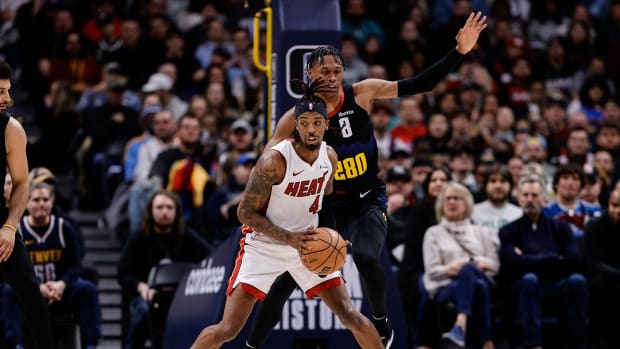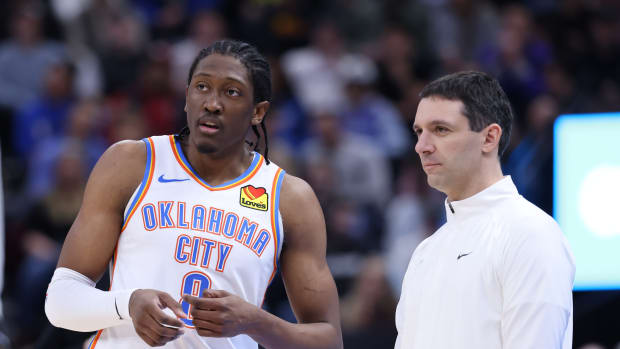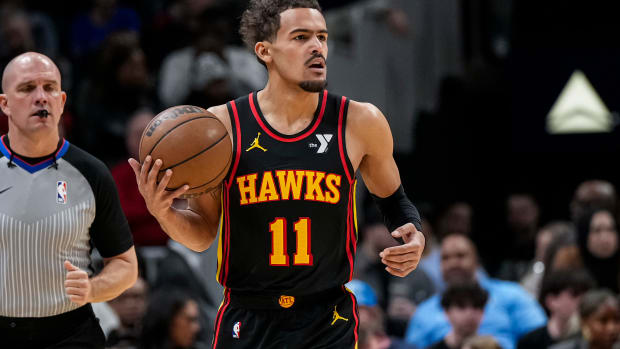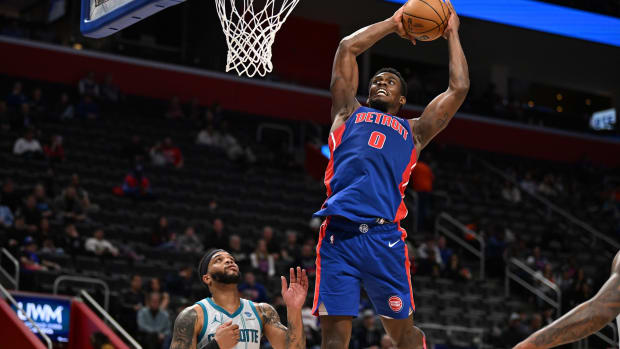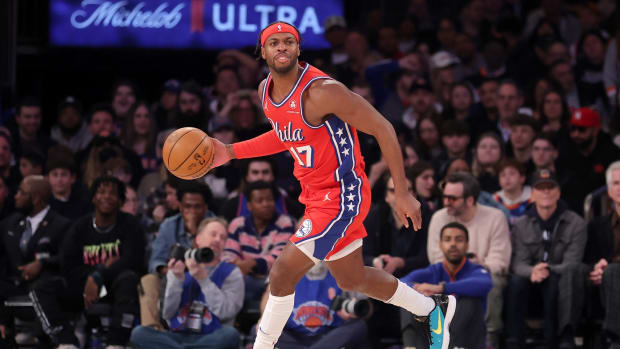Impending Criminal Trial May Impact Marcus Morris's Availability For Celtics
As reported throughout the week, the Boston Celtics’ ability to sign Utah Jazz forward Gordon Hayward to a maximum 4-year, $128 million contract is contingent upon the team freeing up the necessary salary cap space. The Celtics obtained that space on Friday by trading guard Avery Bradley and a second round pick to the Detroit Pistons for forward Marcus Morris. The trade saves the Celtics about $3.8 million in salary commitments for the upcoming ’17-18 season, thereby enabling the C’s to sign Hayward and other players. According to The Boston Globe’s Adam Himmelsbach, one of those other players will likely be 2016 first-round pick Guerschon Yabusele, a forward who recently played for the Shanghai Sharks.
For his part, the 27-year-old Morris is expected to become a key player for Celtics head coach Brad Stevens. The team is desperately in need of big men to play alongside center Al Horford. This is particularly true after the Celtics lost free agent forwards Amir Johnson and Kelly Olynyk to the Philadelphia 76ers and Miami Heat, respectively.
In acquiring the 6’9 Morris, the Celtics obtain a capable forward. The former University of Kansas star averaged 14 points and 5 rebounds in 33 minutes a game last year. Morris is also regarded as a physical defender who is durable and plays with consistency.
Celtics trade Avery Bradley to Pistons for Marcus Morris
Upcoming criminal trial for Morris and potential impact on his Celtics career
Unfortunately for the Celtics, Morris also comes with legal baggage: he has a pending criminal law matter that could lead to a prison sentence, NBA suspension or both.
Morris, along with his identical twin brother, Washington Wizards forward Markieff Morris, are scheduled to go to trial on August 21 in Maricopa County, Arizona, to face felony charges. The two brothers each face two charges for aggravated assault—temporary disfigurement. Under Arizona law, a conviction on each of those charges carries a maximum prison sentence of 3.75 years and a presumptive sentence of 2.5 years. Since neither brother appears to have a criminal record beyond traffic offenses and, for Marcus, a misdemeanor battery citation while at Kansas, each would likely not face anywhere near the maximum sentence if convicted in Arizona. Still, they could face some time behind bars or at least a suspended sentence, probation and required community service.
The charges stem from a January 2015 incident at the Nina Mason Pulliam Recreation Center in Phoenix. At the time, the Morris twins played for the Phoenix Suns.
According to law enforcement, the Morris twins, along with three other men who, like the twins, are from Philadelphia PA, pummeled and kicked Phoenix resident Erik Hood. The attack caused Hood to suffer a broken nose and other facial injuries that required hospitalization.
The incident followed a youth basketball game. Hood, who was approximately 35 years old at the time, was walking out of the gymnasium and intending to go home when someone came from behind and whacked him. The hit caused Hood to fall to the ground. Hood then tried to run to his car but was stopped and attacked by five men.
Hood, who in October 2016 filed a civil lawsuit against the Morris twins and the three other men, says he’s known the Morris twins for years. The Morris twins, however, not only say they had nothing to do with the incident but they also deny having previous ties to Hood. Law enforcement officers believe the attack was premeditated and retaliation for Hood texting an “inappropriate” message to the mother of the Morris twins.
If convicted, the Morris twins would not only face possible jail time but also minimum 10-game NBA suspensions. Under Article VI, Section 7 of the NBA’s collective bargaining agreement, when a player is convicted, pleads guilty or pleads no contest to a violent felony, “he shall immediately be suspended by the NBA for a minimum of ten (10) games.”
Trade Grades: Celtics Unload Avery Bradley To Pistons For Marcus Morris
If the Morris twins instead reach plea deals with prosecutors and plead guilty to misdemeanors—such as misdemeanor assault—they could avoid prison sentences. They would also no longer face punishments under Article VI since they would not be responsible for committing “violent felonies.”
The Morris twins would still, however, be eligible for NBA punishment under Article 35 of the league Constitution. Article 35 empowers NBA commissioner Adam Silver to suspend players for any “conduct that does not conform to standards of morality or fair play, that does not comply at all times with all federal, state, and local laws, or that is prejudicial or detrimental to the NBA.” Pleading guilty to a misdemeanor makes an NBA player vulnerable to punishment under Article 35.
While it is impossible to predict how long Silver would suspend the Morris twins if they were punished under Article 35, last October Silver suspended Sacramento Kings guard Darren Collison for eight games following Collison pleading guilty to misdemeanor domestic battery. Per Article XXXI, Section 9 of the CBA, either Morris would be able to appeal any suspension that exceeds 12 games to a neutral arbitrator.
The Crossover will keep you updated on developments in the Morris case.
Michael McCann, SI's legal analyst, provides legal and business analysis for The Crossover. He is also the Associate Dean for Academic Affairs at the University of New Hampshire School of Law.






























